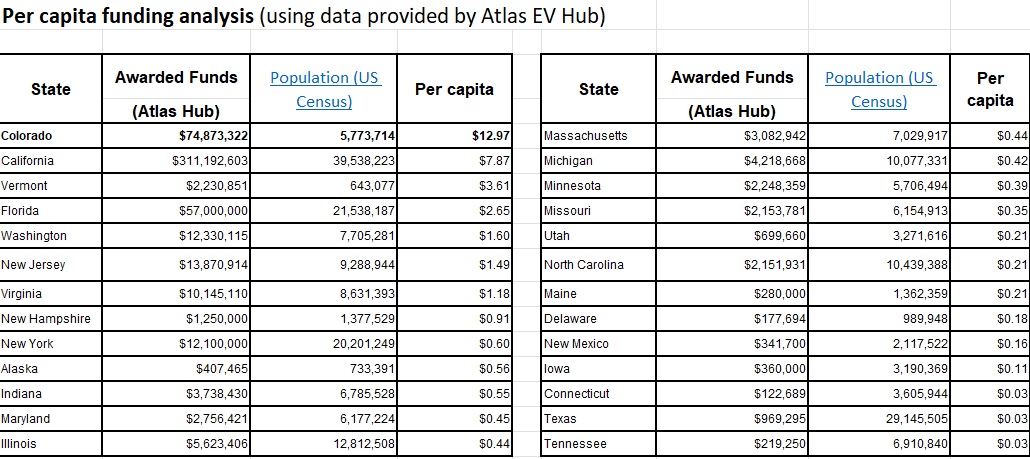Danny Katz
Executive Director, CoPIRG
Executive Director, CoPIRG
DENVER – As the school year draws to a close for most students, Gov. Jared Polis signed SB22-193 Thursday morning, making Colorado the national leader in per capita investments in electric school buses and creating the largest state incentive program for e-bikes in the country. The law allocates $65 million to transition the state’s fleet of mainly diesel school buses to cleaner electric alternatives and $12 million for incentives for electric bikes.
According to data provided by the Atlas EV Hub on electric school bus spending, the $65 million from the new bill means Colorado will invest $12.97 per resident, compared with California at $7.87 and Florida at $2.65. In addition, the $12 million for electric bikes (e-bikes) is the largest incentive in the country of its kind.
“No child should have to breathe toxic diesel exhaust fumes on their way to school. By eliminating tailpipe emissions, electric school buses provide safer, healthier transportation for our children while also cutting ozone-causing air pollution from the transportation sector,” said CoPIRG Advocate Alex Simon. “As the largest per-person state investment in electric school buses, this legislation will accelerate the transition to 100% zero-emissions transportation and a cleaner, healthier future for Colorado.”
In addition to electric school buses, the bill provides $12 million in incentives for e-bikes, the largest investment exclusively in electric bikes in the country. E-bikes offer a cheaper and more sustainable alternative to car transportation that also improves health and fitness. Nearly 50% of trips in the Denver metro region are less than three miles. If a larger fraction of those trips were made with an e-bike, it would reduce car traffic and pollution.
“Electric bicycles are an ideal option for shorter commutes to school or the workplace, allowing consumers to enjoy the health and environmental benefits of electric transportation at significantly less expense than an electric car,” said CoPIRG Executive Director Danny Katz. “Investments like these can help address Colorado’s air pollution crisis while providing healthier and better transportation options for all residents.”
The bill creates an e-bike rebate program (similar to the wildly popular Denver electric bike rebate program) where qualified individuals can receive rebates for the purchase of electric bikes and related equipment used for commuting purposes. Additionally, the bill provides funding for local governments, tribal governments, and nonprofits to administer bike share programs or ownership programs for electric bicycles.
Electric school buses reduce air pollution by eliminating tailpipe emissions and reduce children’s exposure to toxic fumes from diesel-powered buses. Following the passage of the bill, Colorado’s total funding for the transition to electric school buses will be $75 million, including about $10 million the state has received in previous years from the Volkswagen scandal settlement.
The new state bill will provide grants, rather than rebates, to school districts and charter schools to cover the costs of purchasing and maintaining electric school buses as well as charging infrastructure and associated electrical upgrades. Funding can also be used to cover administrative costs associated with applying for the program, and awards will prioritize districts disproportionately impacted by air pollution.
